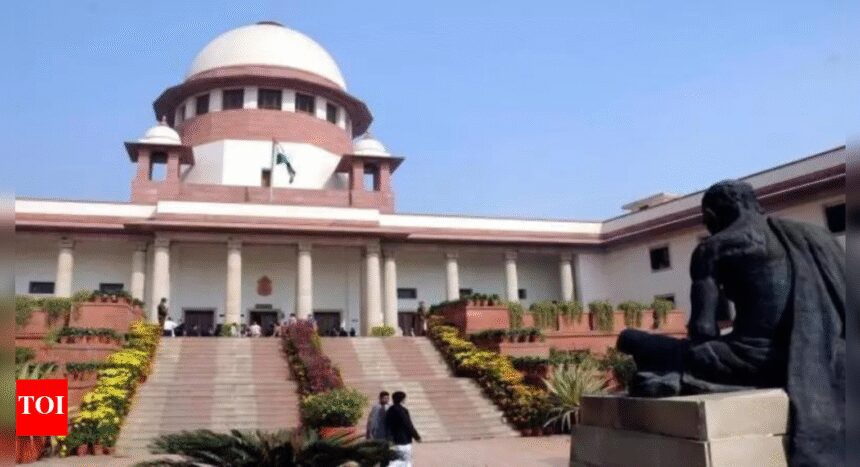NEW DELHI: The Supreme Court has issued a notice to the Delhi Police regarding the bail petitions filed by student activists Umar Khalid, Sharjeel Imam, Meeran Haider, Gulfisha Fatima, and Shifa Ur Rehman. These individuals are implicated in a larger conspiracy related to the Delhi riots and face charges under the stringent Unlawful Activities (Prevention) Act (UAPA).
Justices Aravind Kumar and N.V. Anjaria called for the Delhi Police’s response and scheduled a hearing for October 7. The counsel representing the accused argued for expedited interim bail, emphasizing that the activists have been incarcerated for over five years.
Citing the Supreme Court’s earlier rulings, the activists noted the lack of expected progress in their trials, asserting that it is unreasonable for them to remain jailed for such an extended period. Senior advocates Abhishek Manu Singhvi and Kapil Sibal argued that the situation is concerning, highlighting that the activists have been held for more than five years, and urged for their interim release.
The bench indicated a willingness to consider the matter thoroughly before delivering a final decision on the main petition. Sibal requested a prompt hearing designated for before Diwali, aiming for the activists’ release by the festival, given their prolonged detention.
All petitioners presented similar arguments for bail and referenced a previous Supreme Court ruling. They contended that the evidence cited by the prosecution is fragile and inadequate, meriting the court’s intervention. They referred to the Supreme Court’s decision regarding the “Javed Gulam Nabi Shaikh vs. State of Maharashtra” case, which underscored that an accused is presumed innocent until proven guilty regardless of the severity of the charges.
The court had previously stated, “If the state or any prosecuting agency… lacks the means to uphold an accused’s fundamental right to a speedy trial as specified under Article 21 of the Constitution, then it should not contest bail on the basis that the crime is serious.” The ruling also clarified that statutory restrictions, like those in UAPA, do not preclude constitutional courts from granting bail in cases where fundamental rights may be violated.
The accused are challenging a prior order from the Delhi High Court, which denied their bail applications and ruled that conspiratorial violence disguised as freedom of speech could not be permitted. This ruling emphasized that such actions must be regulated by state authorities.
Those denied bail include fellow accused Mohd Saleem Khan, Athar Khan, Abdul Khalid Saifi, and Shadab Ahmed, while another defendant, Tasleem Ahmed, had a separate bail plea rejected by a different High Court bench on September 2.










